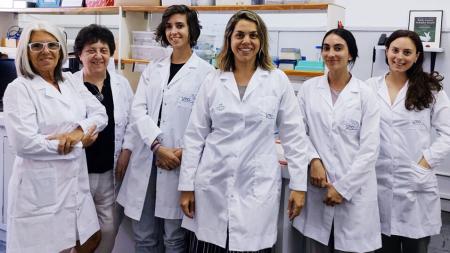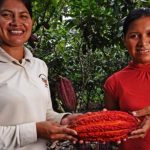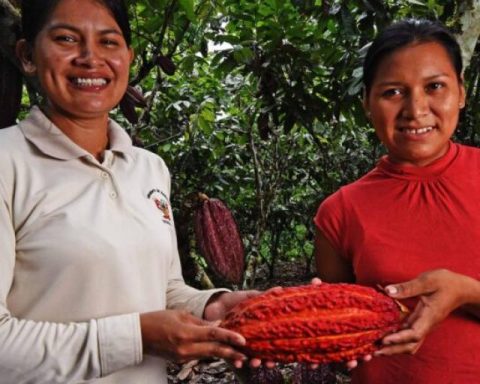“Our work focuses on incorporate and optimize alternative methodologies to the use of animals that have already been validated in other countries, and in developing new methodologies that seek to answer questions related to the safety evaluation of products, for which animal tests are still required,” he described to Télam María Laura Gutiérrez, director of the Laboratory of Alternative Methods for the use of Animals (LMA-EBAL).
The researcher highlighted that “the purpose was for an Argentine laboratory to incorporate them for the first time and make them available to the local industry so that they can be applied to safety tests that are required by ANMAT and SENASA”, in this way, “those companies who don’t want to test on animals can already do it in the country”.
At its inception in 2016, the laboratory incorporated methods to assess the potential for eye irritation and corrosion. of products such as agrochemicals, cosmetics, household cleaning products (household cleaning products) and drugs that had already been validated by the European Union (by ECVAM – European Union Center for Validation of Alternative Methods) and the OECD (Organization for Economic Cooperation and Development ).
Gutiérrez explained that this task was not easy: “The incorporation of a validated methodology is not an easy or fast job, it requires specific know-how (prior knowledge) and an economic investment,” he explained.

Over time, the laboratory added validated tests to assess skin sensitization (clinically known as dermatitis or allergies), skin irritation, phototoxicity, and oral toxicity: “All of these methodologies are based on non-animal models that primarily use cell cultures, organ cultures, and reconstructed tissue cultures,” he described.
As an example, the researcher said that they have a model of human epidermis reconstructed from human skin epithelial stem cells obtained from donors during plastic surgery.
“On the other hand -he pointed out- animal tests are still required because there is a lack of development of in vitro models (in cell or tissue culture) that cover all the evidence that is necessary to present in the safety report of the products at the time of their record”.
“In this sense, we have original lines of research, in which we use the aforementioned models and stem cells with the purpose of developing innovative methods,” he said.
Advantages
The specialist explained that these testing methods represent numerous advantages over those carried out in animal models.
“First of all, with advances in the development of cell and molecular biology and tissue engineering it is unethical to continue using animalswith the suffering that it implies, when there are tools that can generate models that replace them,” he said.
In terms of efficacy, he highlighted that “in most cases, models that use reconstructed cells or tissues better represent human physiology and physiopathogenesis than classical animal models such as rats, mice, rabbits, and guinea pigs.”

Currently More and more countries impose restrictions and bans on the marketing of products that have been tested on animals.Therefore, it is a barrier for those national SMEs that want to access those markets.
In the region, for example, countries such as Brazil, Colombia, and Chile already have restrictions and prohibitions for the testing of cosmetics, which will be implemented in stages, gradually as they incorporate alternative methods, which take time.
“That is why it is important, even though there is no legislation yet, to work on this issue because the bans will come. On the other hand, although in Argentina we currently do not have restrictions, more and more consumers are choosing to buy products not tested on animals for which also conditions local demand,” he concluded.
Beyond the tests LMA-EBAL researchers also provide advice and training to companies that want to implement this type of testing methodology.
The LMA-EBAL team is also made up of CONICET researcher Julieta Roco, CONICET doctoral fellows Mariela Lenze and Martina Benedetti, CONICET postdoctoral fellow Pedro Ramírez, Silvia Wikinski, CONICET researcher and director of the Preclinical Trials Platform. , Claudia García Bonelli, head of Quality at EBAL and Claudio Vilariño, head of technological linkage.


















